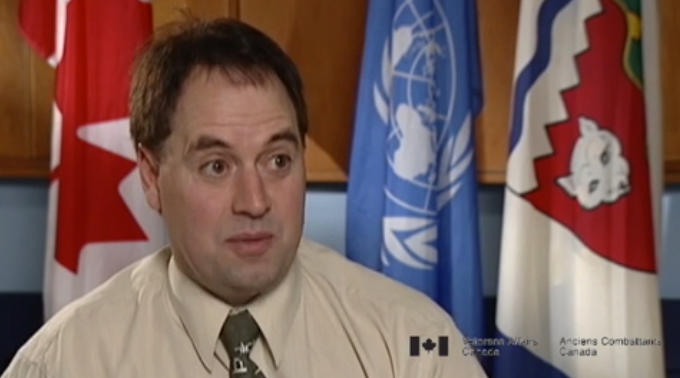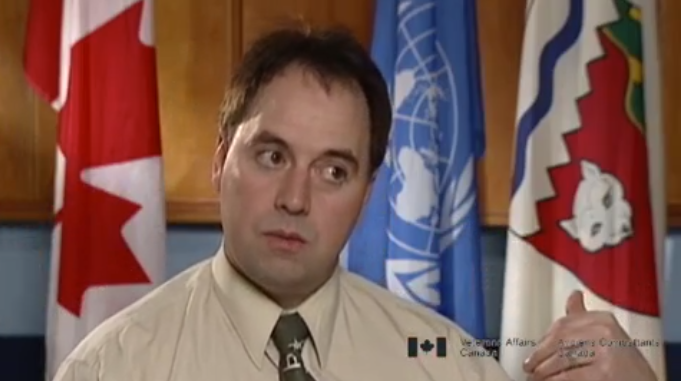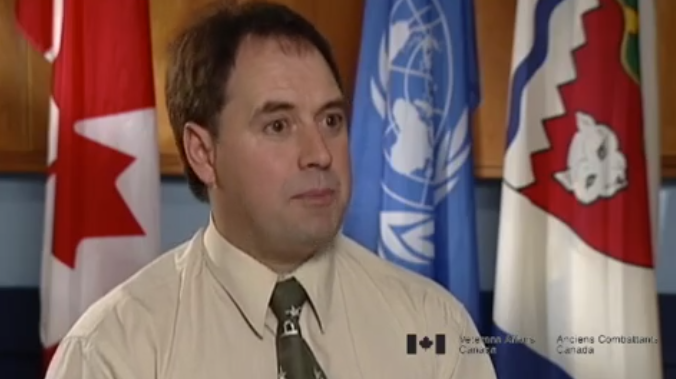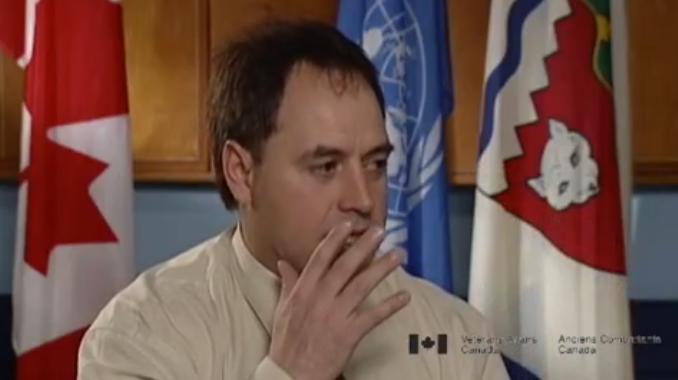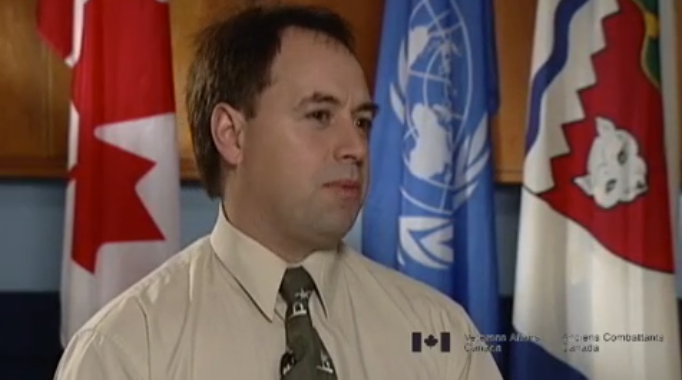Brought Up To Help Others
Heroes Remember
Brought Up To Help Others
Transcript
Description
Mr. Campbell explains how, when he was in Yugoslavia they weren’t supposed to help civilians who needed attention, but he did what he could for them anyhow.
Perry Campbell
Mr. Campbell was born on August 19, 1963, in Goose Bay, Labrador. After moving to a fishing village in Newfoundland at the age of 13, Mr. Campbell tried to make it as a fisherman but unfortunately suffered from sea sickness and went back to Labrador. One day he saw a Canadian Forces ad that stated, "No life like it." Captivated by this, Mr. Campbell applied and within four months he began travelling across Canada for his basic training. After three years as an infantryman, Mr. Campbell decided to become a military police officer. As a military police officer Mr. Campbell was always in the face of danger, but none so great as when he was called upon for duty in the former Yugoslavia with the UN Peacekeeping unit in the early 1990s. Here he was a master corporal, heading up the main investigative body for all armies, managing his own shift, and being responsible for the Jordanian Armies. Mr. Campbell spent nine years as a military police officer, and if called upon today for service would not hesitate to answer the call of duty for his country and undying dedication to the Canadian Forces. Mr. Campbell has spent the last ten years in Yellowknife with his wife and children.
Meta Data
- Medium:
- Video
- Owner:
- Veterans Affairs Canada
- Duration:
- 02:04
- Person Interviewed:
- Perry Campbell
- War, Conflict or Mission:
- Canadian Armed Forces
- Location/Theatre:
- Yugoslavia
- Branch:
- Army
- Units/Ship:
- Royal Canadian Regiment
- Rank:
- Master-Corporal
- Occupation:
- Infantry
Related Videos
- Date modified:



